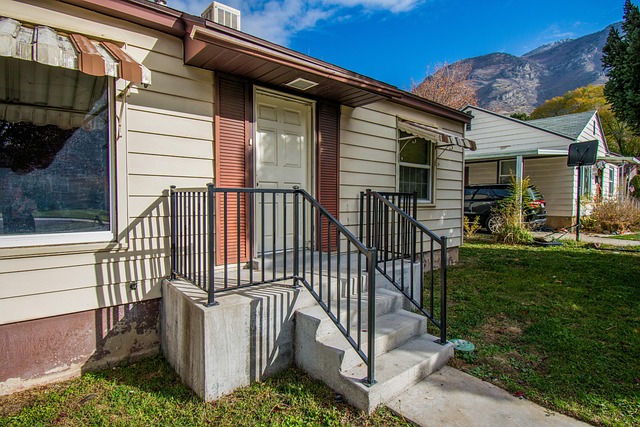50-Year Mortgage Impact: Housing Market Crash Predictions and Real Estate Analysis
The introduction of 50-year mortgage terms has sparked intense debate among economists, real estate professionals, and potential homebuyers. His plan to extend mortgage durations could fundamentally reshape the housing market, and many experts warn that this approach will crash traditional real estate dynamics and create unforeseen consequences for generations of homeowners.
Understanding the Basics

The 50-year mortgage concept represents a significant departure from the standard 15 or 30-year mortgage terms that have dominated the housing market for decades. Under this extended payment structure, borrowers spread their loan repayment over half a century, theoretically lowering monthly payments and making homeownership more accessible to buyers who struggle with affordability in today’s competitive market.
However, the mechanics of such long-term financing reveal troubling implications. When you extend a mortgage to 50 years, the total interest paid over the life of the loan increases dramatically. For example, a $400,000 mortgage at 6% interest would cost approximately $463,000 in interest over 30 years, but that same loan extended to 50 years would accumulate roughly $719,000 in interest payments. This means borrowers would pay nearly $260,000 more in interest alone.
Furthermore, equity building becomes painfully slow with 50-year terms. In the early decades of the mortgage, monthly payments primarily service interest rather than principal. A homeowner might pay for 15-20 years and still owe more than 80% of the original loan amount. This creates a situation where homeowners remain perpetually indebted, with little wealth accumulation through property ownership.

The psychological and economic implications extend beyond individual borrowers. When mortgage terms stretch across half a century, they begin to span entire generations. Parents might pass away before paying off their homes, potentially leaving debt burdens to their children. The traditional concept of paying off a mortgage before retirement becomes virtually impossible, forcing elderly homeowners to continue making payments on fixed incomes.
Key Methods
Step 1: Analyzing Market Vulnerability

Understanding how 50-year mortgages could destabilize the housing market requires examining historical patterns and economic fundamentals. His plan introduces systemic risks that mirror conditions preceding previous housing crises, though with unique characteristics that make this situation potentially more severe.
The extended payment terms artificially inflate housing prices by increasing buyer purchasing power on paper. When buyers can “afford” higher-priced homes due to lower monthly payments, sellers raise asking prices accordingly. This creates an inflationary spiral where home values become increasingly detached from underlying economic fundamentals like wage growth and rental yields. Eventually, this disconnection becomes unsustainable.
Additionally, 50-year mortgages increase the financial system’s exposure to long-term risk. Lenders must account for five decades of potential economic volatility, interest rate fluctuations, and borrower circumstances. The 2008 financial crisis demonstrated how mortgage-backed securities can collapse when underlying loans fail, and 50-year terms exponentially increase the timeline during which defaults might occur.

Step 2: Identifying Warning Signs
Savvy investors and homebuyers must recognize the indicators that suggest his plan will crash the market sooner rather than later. Several warning signs deserve careful monitoring as these extended mortgages become more prevalent in the lending landscape.
First, watch for rapid increases in home prices that outpace income growth. When the ratio of median home prices to median household income exceeds historical norms by significant margins, especially in conjunction with extended mortgage terms, market correction becomes increasingly likely. This metric has proven reliable in predicting previous housing bubbles.

Second, monitor the percentage of new mortgages with 50-year terms. As this percentage rises, especially if it accelerates rapidly, it indicates growing desperation among buyers and potentially unsustainable market conditions. Lenders aggressively marketing these products may signal that traditional mortgage products have become inaccessible to too many potential buyers.
Third, examine foreclosure and default rates among early adopters of extended-term mortgages. If borrowers begin defaulting even with supposedly “affordable” payments, this suggests the underlying problem isn’t monthly payment size but rather fundamental affordability issues that longer terms cannot solve.
Step 3: Developing Protection Strategies
Whether you’re a current homeowner, prospective buyer, or real estate investor, protecting yourself from the potential fallout when his plan crashes the market requires proactive strategy development and disciplined execution of risk management principles.
For prospective buyers, resist the temptation of 50-year mortgages despite their lower monthly payments. Instead, focus on purchasing less expensive properties with traditional 15 or 30-year terms. You’ll build equity faster, pay substantially less interest, and maintain greater financial flexibility. Consider smaller homes, different neighborhoods, or waiting until you can afford a reasonable down payment on a traditionally financed property.
Current homeowners with existing mortgages should avoid refinancing into extended terms, even if monthly payments would decrease. The long-term costs far outweigh short-term payment relief. Instead, explore ways to accelerate existing mortgage payoff through extra principal payments or biweekly payment schedules. Building equity rapidly provides protection against market downturns and creates financial security.
Investors must approach real estate markets dominated by 50-year mortgages with extreme caution. Properties purchased by buyers with minimal equity become vulnerable to foreclosure during economic downturns, potentially flooding markets with distressed sales. Invest in markets with lower percentages of extended-term mortgages, or focus on cash-flowing rental properties where your returns don’t depend on continued price appreciation.
Practical Tips
**Tip 2: Prioritize Equity Building Over Payment Minimization** – Wealth building through real estate depends fundamentally on equity accumulation, not merely occupying a property. Every mortgage payment should meaningfully reduce your loan balance and increase your ownership stake. With 50-year mortgages, this process slows to a crawl, leaving you vulnerable to market fluctuations and unable to leverage home equity for other financial goals. Instead, choose shorter terms even if it means buying less expensive properties. A $300,000 home on a 30-year mortgage builds wealth faster than a $400,000 home on a 50-year term, even though the latter might have similar monthly payments.
**Tip 3: Maintain Emergency Reserves Regardless of Payment Size** – Lower monthly payments from extended mortgages create false security that can leave homeowners unprepared for inevitable financial emergencies. Job loss, medical expenses, or necessary home repairs don’t become less likely because your mortgage payment is lower. In fact, the longer you remain indebted, the more opportunities exist for financial disruptions. Financial advisors typically recommend 3-6 months of expenses in emergency funds, but homeowners with 50-year mortgages should target 9-12 months given their extended financial commitment and slower equity building that limits refinancing or selling options during crises.
**Tip 4: Diversify Investments Beyond Real Estate** – When mortgages consume 50 years of cash flow, they prevent diversification into other wealth-building vehicles. The opportunity cost of paying hundreds of thousands in extra interest means sacrificing retirement account contributions, business investments, or education funding. Before committing to an extended mortgage, calculate what investing the interest difference could yield over decades. For example, investing an extra $500 monthly for 50 years at 8% returns generates over $3.1 million—wealth that vanishes when channeled into mortgage interest instead. Balance homeownership desires against comprehensive financial planning.
**Tip 5: Monitor Market Conditions Continuously** – Real estate markets evolve constantly, and his plan introducing widespread 50-year mortgages creates unprecedented conditions requiring vigilant monitoring. Subscribe to economic analysis from reputable sources, track local market statistics, and understand broader economic indicators like interest rate trends, employment data, and housing inventory levels. If you already own property, know your current equity position and have contingency plans for various market scenarios. If you’re considering buying, patience and market awareness can mean the difference between purchasing before a crash and buying during recovery when prices reflect realistic values.
Important Considerations
Before anyone considers a 50-year mortgage, several critical precautions and warnings deserve serious consideration. The allure of lower monthly payments can blind borrowers to substantial risks and long-term consequences that may prove financially devastating.
First, understand that 50-year mortgages often include less favorable terms beyond just duration. Lenders may charge higher interest rates to compensate for extended risk exposure, meaning you’ll pay more monthly AND more over the loan’s life. Some products include balloon payments, adjustable rates after initial fixed periods, or prepayment penalties that trap you in unfavorable terms. Read all documentation carefully and consult with independent financial advisors—not mortgage brokers whose commissions depend on closing loans.
Second, consider life stage and financial goals. If you’re 30 years old taking a 50-year mortgage, you’ll be 80 before achieving full ownership. This timeline conflicts with retirement planning, as you’ll need income streams supporting mortgage payments long after leaving the workforce. Most financial planning assumes housing costs decrease dramatically in retirement through paid-off mortgages, but 50-year terms eliminate this advantage.
Third, recognize that his plan and the widespread adoption of these mortgages creates systemic risk affecting even those who don’t participate. When housing markets crash due to unsustainable extended financing, property values decline broadly. Your responsibly financed home may lose value because neighbors purchased using 50-year terms they ultimately cannot sustain, leading to foreclosures that depress neighborhood prices.
Conclusion
The introduction and promotion of 50-year mortgage terms represents a concerning development in real estate financing that threatens both individual financial security and broader market stability. While his plan may appear to address housing affordability challenges by lowering monthly payments, this approach merely masks underlying problems while creating new risks that will crash the market when conditions inevitably shift.
History demonstrates repeatedly that artificial measures to boost housing affordability without addressing fundamental supply-demand imbalances eventually fail catastrophically. Extended mortgage terms don’t create more housing, increase wages, or improve economic fundamentals—they simply allow buyers to overextend themselves across longer timeframes, accumulating massive interest costs while building equity painfully slowly.
For individuals navigating today’s challenging housing market, the temptation of 50-year mortgages is understandable but must be resisted. Focus instead on proven wealth-building strategies: living within your means, choosing shorter mortgage terms even if it means smaller homes, building emergency reserves, and maintaining diversified investments. The temporary discomfort of a smaller first home or delayed purchase far outweighs the decades of financial strain and risk that extended mortgages create.
As markets evolve and his plan potentially gains broader adoption, stay informed, remain skeptical of products that seem too good to be true, and prioritize long-term financial health over short-term payment minimization. Real estate wealth building requires patience, discipline, and equity accumulation—qualities fundamentally incompatible with 50-year mortgage terms. Those who recognize these realities and plan accordingly will be positioned to weather the inevitable market corrections ahead, potentially acquiring quality properties at reasonable prices from distressed sellers who learned these lessons too late. Your financial future depends on making wise decisions today, regardless of prevailing market trends or lender marketing messages promoting unsustainable financing options.
